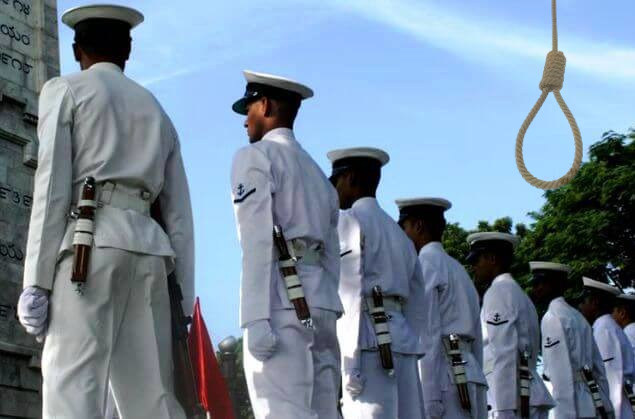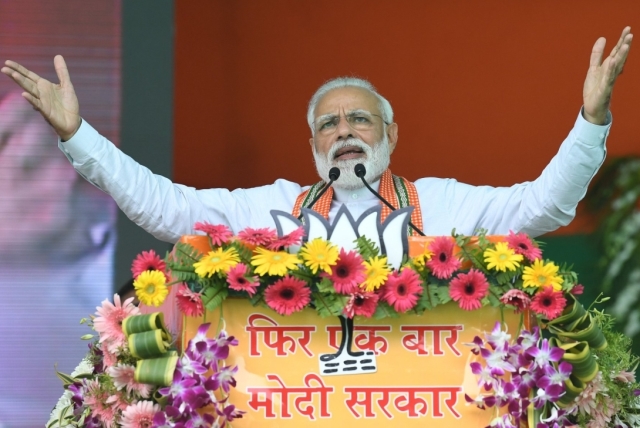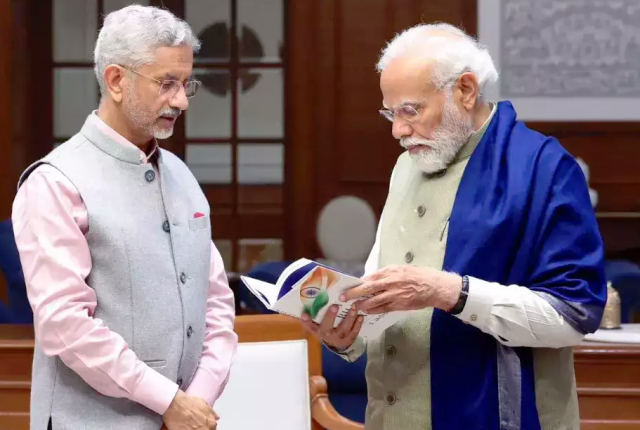
Why is India’s Reaction to the Death Sentences in Qatar So Muted?
Mystery and opaqueness surround the recent death sentences meted out to eight Indians, all of them former Indian Navy personnel, by a Qatari court. The exact charges against the eight, some of them recipients of prestigious awards given by India, are unclear, although some media reports say they were arrested in 2022 and charged with espionage. Some of them have even suggested that these men, working for a private company whose task was to oversee the induction of Italian U212 stealth submarines into the Qatari Emiri Naval Force, were charged with spying on the submarine programme for Israel.
Mystery and curiousness also surround the muted reaction of India to the Qatari court’s decision. Last Thursday, the Indian government said it was “deeply shocked” and that it would take up the verdict with Qatari authorities but it has refrained from making too much noise about it or criticising Qatar in any public statement. In fact, India has ensured that its actions do not appear to meddle in Qatar’s judicial matters related to the case. The Indian intelligence system and government authorities, which recently demonstrated overt belligerence in regard to Canada’s allegations that Indian agents may have been behind the killing of an Indian-Canadian man, classified as a separatist by India, have been quite low key in their reaction to the Qatari death sentence decision.
What’s also mysterious is the reaction in Indian media. As of last weekend, there were hardly any comments or editorials on the issue in the country’s largest and most well-known newspapers and news channels. Everyone seemed to be keeping their heads down on what certainly is a shocking development. Were the eight men, who were employees of Al Dahra, a consulting firm working with Qatar’s military, really spies? Could it be that they are being framed? What do their associates, former colleagues, family members have to say? What is the pedigree of Al Dahra? What kind of work has it done in the past?
Questions such as those are ones that many Indians would want to know the answers to. Yet, you would be hard-pressed to find any in India’s media.
What is the status of India’s relations with Qatar and is India afraid of jeopardising those? Let’s take a deeper look. Historically, India and Qatar have been friendly. Petroleum and natural gas account for more than 60% of Qatar’s GDP and India, a big oil importer, buys more than $5 billion worth of oil from Qatar, which has also been increasing its foreign direct investments in India (according to one report, Qatar has invested $1 billion in Mukesh Ambani’s Reliance Retail). Indian leaders, including Prime Minister Narendra Modi, have visited Qatar and Qatari leaders, including the Emir, who is the country’s monarch and head of the kingdom, have visited India.
Is it just the risk of upsetting the cordiality that the two countries enjoy that has made India’s reaction to the death sentences so low key? Or could it be something other than that?
India’s stance on the current conflict between Israel and the Hamas, where it has come out in support of Israel, is diametrically opposite that of Qatar’s. India has unequivocally supported Israel’s right to defend itself against the terrorist strikes by Hamas.
Qatar, like several other members of the Arab League, a loose confederation of 22 Arab countries, does not even recognise Israel. In fact, Qatar has recently hosted Hamas leaders, offering them safe refuge. Qatar is firmly aligned with Hamas and irs conflict against Israel. In that context, Qatar’s charges against the eight Indians of spying from its soil for Israel become even more serious.
India’s support for Israel marks a change from its past stance. India has always supported the Palestinian cause but in recent years it has grown closer to Israel and taking the Israeli side marks a notable change in its diplomacy in the Middle East.
Could the death sentences for the eight Indians be an indicator of how the Arab world would now view India. In recent years, India has tried to maintain friendly relations, mainly based on economic considerations, with both Arab nations such as Saudi Arabia as well as Israel. Now, with the conflict in Gaza threatening to blow up into a larger conflagration that could include nations such as Iran, Qatar, Saudi Arabia and others, things could get more complicated. For India’s diplomatic stance in the region that could be uneasy.
Can India continue to balance on the tight-rope as it attempts to maintain good relations with both sides, the Arab world as well as West-backed Israel? Perhaps the muted response of the Indian authorities to the death sentences is symptomatic of the uneasiness.
There are More Ultra Rich Indians
For those who derive vicarious pleasure in tracking the ultra rich, the list of individuals in India who make that list just got longer. Hurun, a research group that also makes lists of the mega rich around the world, released its India list and the top ranker on it is Mukesh Ambani of the Reliance Group. Ambani, whose wealth is estimated at $98 billion (he is still way behind the richest man in the world, Elon Musk, whose net worth is estimated at $226 billion).
The figure, $98 billion, translates into 8,156,442,000 Indian rupees or 8156.44 crore. If you’re looking for more completely useless trivia regarding India’s ultra rich you might like to know that this year Ambani has overtaken last year’s richest person, Gautam Adani, one of his business rivals who was also in the eye of controversy recently when reports emerged that his group may have manipulated its stocks illegally. It was those allegations that affected the value of his companies and, hence, his net worth.
The list of India’s top 10 ultra rich include, among others, Cyrus Poonawala, who owns a biotech and vaccine making company; Shiv Nadar, the founder of an infotech empire; Gopichand Hinduja of the Hinduja Group of companies; and Kumar Mangalam Birla of the Aditya Birla Group.
The Hurun ranking identifies 1,319 Indian individuals with wealth of $120m or more, which is 216 more than last year. Indeed, India now is estimated to have more than 250 billionaires. Interestingly, the fortunes of the ultra rich in India have not been built via conventional routes. Whereas in most countries the rich get rich from owning businesses such as industry, finance and information technology, in India, a greater proportion of the very rich have built their fortunes in consumer goods, primary products such as metals, minerals, and oil, and healthcare.
The other aspect of the ultra rich in India to note is that they are still far behind China. According to Hurun, India’s 250 billionaires are eclipsed by China’s 1,133 and USA’s 716.
Want more trivia? Hurun is a research, media and investment business that is best known for its Hurun Rich List, a ranking of the wealthiest individuals in China. It was started by a Shanghai-based British national, Rupert Hoogewerf (whose Chinese name is Hu Run).
Trinamool’s New Controversy
Controversy is not new for West Bengal’s Trinamool Congress (TMC). Led by chief minister Mamata Banerjee, the party has been in power in the eastern Indian state for 12 years. But during this period it has also been embroiled in controversies. These include large-scale violence in the state, particularly during elections; and alleged misconduct by Banerjee’s nephew, Abhishek, who has faced allegations of financial irregularities.
The latest controversy involves one of the party’s members of parliament, Mahua Moitra, who has been charged by an opposition lawmaker with asking questions in parliament in exchange for bribes. According to the charges, Moitra asked several questions targeting the Adani Group belonging to Gautam Adani in exchange for gifts and cash from another businessman.
While Moitra has denied these allegations, a parliamentary ethics committee started hearing the case last Thursday.
According to political experts, the committee cannot punish Moitra even if it rules against her as it does not have executive powers. Its recommendation will have to go before the house, which can decide to accept or reject it. In the instance Ms. Moitra is expelled from parliament, she can challenge the decision in court. Meanwhile, the emergence of this new controversy is expected to dent the image of the TMC, which is a key constituent of India’s opposition alliance, I.N.D.I.A., which was formed by 26 opposition parties to challenge the BJP in next year’s parliamentary elections.



